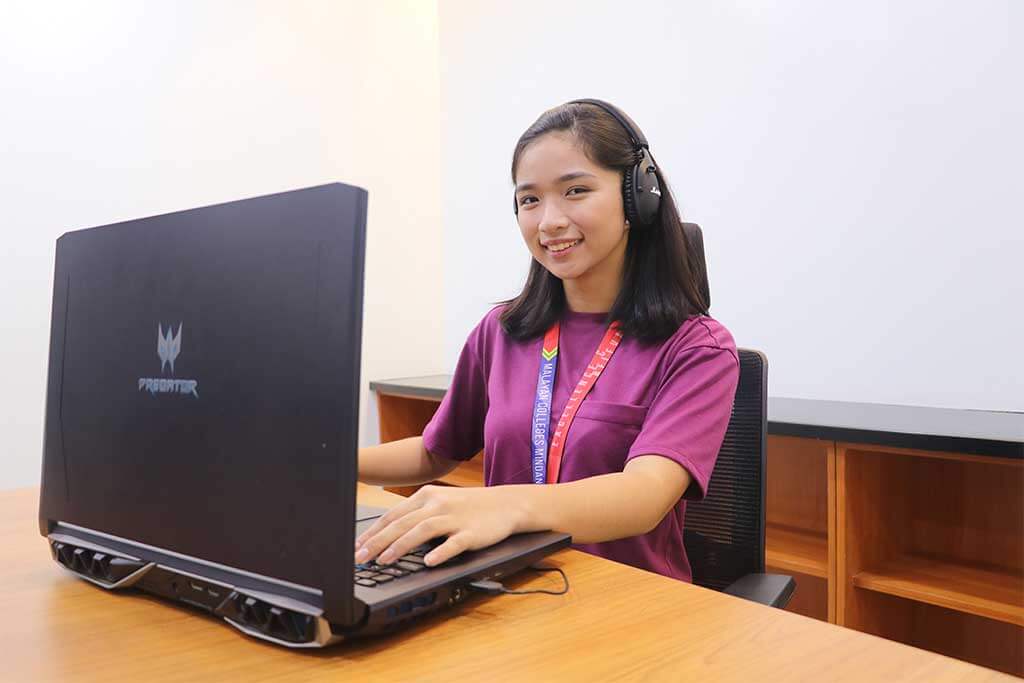Bachelor of Science in Entertainment and Multimedia Computing (BSEMC)

BS Entertainment and Multimedia Computing Program Overview
The Bachelor of Science in Entertainment and Multimedia Computing (BSEMC) specialized in Game Development program prepares students to become game development professionals with specialized knowledge, competencies and values in designing, developing and producing digital games and tools, and in managing game development projects for various applications.
Program Educational Objectives
- Articulate expertise in understanding, analyzing, and applying current and emerging technologies in the design and development of IT-based solutions for entertainment and multimedia computing profession.
- Perform tasks effectively as individuals and team members in the workplace growing into highly technical or project management and leadership roles.
- Pursue life-long learning enabling them to adapt and grow as organizational responsibilities change.
Program Outcomes
Graduates of the Bachelor of Science in Entertainment and Multimedia Computing program are expected to demonstrate:
- Apply knowledge of mathematics, physical sciences, contemporary issues, and computer sciences to the practice of being an entertainment and multimedia computing professionals.
- Specialized computing knowledge in each applicable field, and the ability to apply such knowledge to provide solutions to actual problems.
- Recognize, formulate, and solve computing problems.
- Analyze project requirements, design and implement project prototypes.
- Design, build, improve, and deploy products that meets client needs within realistic constraints.
- Use the appropriate techniques, skills and modern computing tools necessary for the practice of being a professional game developer or animator.
- Function effectively as an individual or a member or leader in diverse teams and in multidisciplinary settings.
- Communicate effectively with the computing community and write effective reports, design documentation, make effective presentation, and give and understand clear instructions.
- Assess the local and global impacts of computing on society relevant to professional computing practice and subscription to accepted industry standards.
- Recognize the legal, social, ethical, and professional issues involved in the utilization of entertainment and multimedia computing projects and be guided by the adoption of appropriate professional, ethical, and legal practices both in local and global community.
- Create or use modified artifacts in considerations of intellectual property rights of the author.
- Recognize the need for and engage in an independent and learning for continual development as an entertainment and multimedia computing professionals.
- Demonstrate innovativeness in creating an original creative outputs.
- Demonstrate client-centric service.
BS Entertainment and Multimedia Computing Career Opportunities
Game Developer
Game developers design and program interactive video games, using skills from the BSEMC program to create engaging gaming experiences.
3D Artist/Animator
BS Entertainment and Multimedia Computing graduates bring characters and environments to life for films, games, and advertisements.
Visual Effects Artist
Visual effects artists craft stunning visuals for movies, TV shows, and digital media, utilizing advanced multimedia skills from the BSEMC program.
Virtual Reality (VR) Developer
VR developers craft immersive virtual experiences for gaming, education, and training, applying advanced expertise and innovative techniques.
Multimedia Designer
Multimedia designers create dynamic and visually engaging content for advertising and media industries, blending creativity and technical expertise.
User Experience (UX) Designer
UX designers optimize user experiences for websites and applications, applying design principles and insights mastered to create intuitive interfaces.

